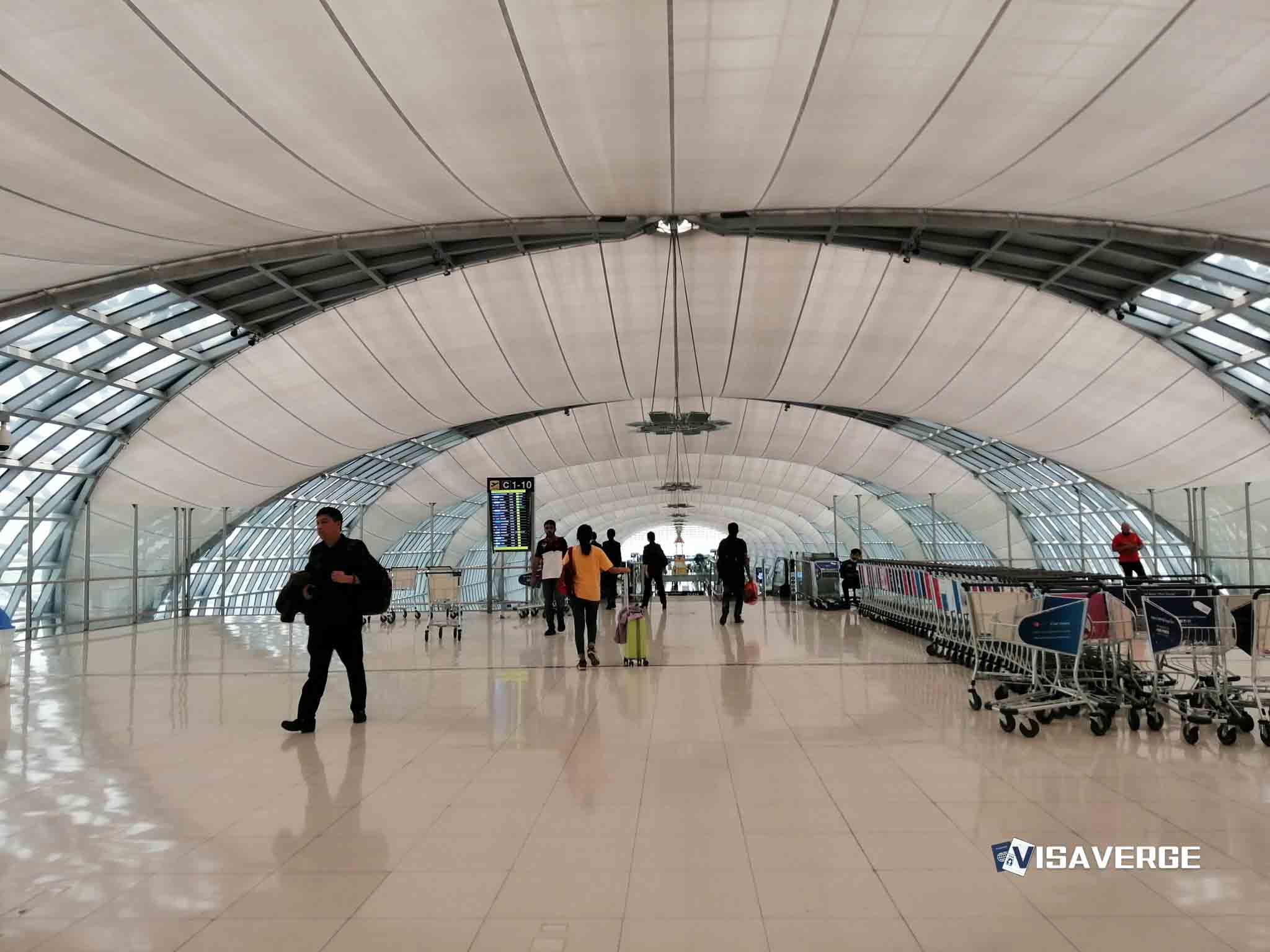Key Takeaways
• Nearly 78,000 immigration cases pending in Denver courts, a 332% increase since 2021.
• Operation Aurora intensifies ICE raids, targeting recent arrivals and long-term residents in Colorado.
• Only 15% of Colorado immigrants have legal representation, worsening deportation risks.
Colorado lawyers Mobilize as Operation Aurora and Trump-Era Crackdown Reshape Immigration Cases
Colorado lawyers are facing a historic challenge in 2025 as President Trump’s renewed immigration crackdown sweeps across the state. With the launch of Operation Aurora, a federal enforcement campaign targeting both new arrivals and long-term residents, legal professionals, advocacy groups, and community leaders are working overtime to protect immigrants’ rights and provide critical legal support. The stakes have never been higher, as thousands of Colorado families face the threat of deportation, and the state’s legal system strains under a record backlog of immigration cases.

Unprecedented Surge in Immigration Cases
As of July 4, 2025, Colorado’s immigration courts are experiencing a crisis. Nearly 78,000 cases are pending in Denver alone—a staggering 332% increase since 2021. Each immigration judge now manages over 7,100 cases, and attorneys are responsible for about 1,600 cases each. This overwhelming caseload has made Colorado the state with the lowest percentage of immigrants represented by counsel, with only about 15% of immigrants having a lawyer to help them through the process.
The shortage of qualified Colorado lawyers specializing in immigration cases has left many immigrants to face complex legal proceedings alone. According to analysis from VisaVerge.com, 85% of immigrants without an attorney lost their cases and were deported between 1997 and 2024. This statistic highlights just how important legal representation is for anyone facing removal or other immigration challenges.
Operation Aurora: A New Era of Enforcement
Operation Aurora, launched in early 2025, marks a turning point in federal immigration enforcement in Colorado. The initiative has brought a wave of high-profile ICE raids to Denver, Aurora, and other cities across the state. These raids target both recent arrivals and people who have lived in Colorado for years, often separating families and causing widespread fear in immigrant communities.
In response, Colorado lawyers, legal aid organizations, and advocacy groups have organized emergency legal clinics, “know your rights” trainings, and rapid response networks. These efforts aim to educate immigrants about their rights, connect them with legal help, and provide support during ICE encounters. The Colorado Immigrant Rights Coalition and the Rocky Mountain Immigrant Advocacy Network are leading the charge, offering free legal services and fighting federal actions in court.
Key Policy Changes and the Legal Landscape
Colorado lawmakers are pushing back against federal crackdowns with new state-level protections. In April 2025, the state legislature introduced Senate Bill 25-276, which would:
- Extend prohibitions on sharing information with ICE to cities, counties, schools, public health clinics, and daycares.
- Clarify that local jails cannot allow ICE agents into nonpublic areas, making it harder for detainees to be transferred to federal custody.
If passed, this bill would strengthen Colorado’s status as a “sanctuary” state, limiting cooperation with federal immigration authorities and providing more security for immigrant families. The bill is expected to face a heated vote later this summer, with both supporters and opponents mobilizing across the state.
At the federal level, several major policy shifts have reshaped the immigration landscape in 2025:
- A new travel ban now blocks nationals from 12 countries and partially restricts entry from 7 others. There are exceptions for lawful permanent residents, diplomats, and certain humanitarian cases.
- Termination of Temporary Protected Status (TPS) for Nepal (effective August 5, 2025) and Cameroon (effective August 4, 2025), affecting hundreds of Colorado residents who now face possible deportation.
- Increased ICE detention, with private prisons and local jails over capacity. New tactics include expedited removals and targeting of political dissidents and activists.
These changes have created new risks for immigrants and increased the need for skilled legal help.
Colorado Lawyers: Overwhelmed but Committed
The surge in immigration cases has pushed Colorado lawyers to their limits. Many attorneys are working overtime, taking on pro bono cases, and partnering with advocacy groups to fill the gap left by the shortage of qualified professionals. Legal aid organizations like the Rocky Mountain Immigrant Advocacy Network and the Colorado Immigrant Rights Coalition are at the forefront, providing emergency representation and organizing legal clinics statewide.
Despite their efforts, the demand for legal help far exceeds the supply. With only about 15% of immigrants represented by an attorney, most people must face complicated legal proceedings alone. This lack of representation can be devastating, as the odds of winning a case without a lawyer are extremely low.
Community leaders and state officials, including Rep. Mike Weissman (Aurora Democrat) and activist Nita Gonzales, have pledged to defend immigrants’ rights and keep Colorado a welcoming place for newcomers. Their support has helped drive public awareness and mobilize resources for legal aid.
Practical Implications for Immigrants
For immigrants in Colorado, the current environment is both challenging and confusing. Access to legal representation is often the deciding factor in whether someone can stay in the United States 🇺🇸 or is forced to leave. Without a lawyer, immigrants must navigate complex paperwork, language barriers, and strict deadlines—often with little understanding of their rights or options.
Notario fraud and immigration scams are also on the rise. Desperate for affordable help, some immigrants turn to unlicensed consultants who promise legal services but cannot deliver. These scams can lead to missed deadlines, lost cases, and even deportation. Legal organizations are warning the public about these dangers and working with authorities to prosecute fraudulent actors.
To help immigrants protect themselves, legal clinics and “know your rights” trainings are being held across Colorado. These events, often organized in partnership with local governments, churches, and nonprofits, teach people how to respond during ICE encounters and what to expect in court.
Step-by-Step Guidance for Immigrants Facing Removal
If you or a loved one is facing removal or deportation in Colorado, here are some important steps to follow:
- Attend a “know your rights” session to learn about your legal protections and what to do during ICE encounters.
- Seek immediate consultation with a qualified immigration attorney or a trusted legal aid organization. Do not rely on unlicensed consultants or “notarios.”
- Gather all important documentation, including IDs, proof of residence, family records, and any immigration paperwork.
- Do not sign any documents or make statements to ICE without first speaking to a lawyer. Anything you say or sign can be used against you.
- If detained, family members should contact local legal aid groups for help and possible representation.
Key Resources for Legal Help
Several organizations in Colorado provide free or low-cost legal help to immigrants:
- Colorado Immigrant Rights Coalition (CIRC): Offers legal clinics, referrals, and emergency hotlines. CIRC website
- Rocky Mountain Immigrant Advocacy Network (RMIAN): Provides pro bono legal services and representation. RMIAN website
- State Bar of Colorado: Directory of licensed immigration attorneys and a complaint process for notario fraud. Colorado Bar Association
- U.S. Citizenship and Immigration Services (USCIS) Denver Field Office: For official forms, appointments, and case status. USCIS Denver
For those needing to file immigration forms, always use the official USCIS forms page to avoid scams and ensure you have the latest version.
Operation Aurora’s Impact on Colorado Communities
Operation Aurora has changed daily life for many immigrant families in Colorado. The increased presence of ICE agents, frequent raids, and new detention tactics have created a climate of fear and uncertainty. Children worry about being separated from their parents, workers are afraid to go to their jobs, and entire neighborhoods are on edge.
At the same time, the legal community’s response has brought hope and support. Colorado lawyers, working alongside advocacy groups and volunteers, have built emergency response networks to help families in crisis. These networks provide rapid legal assistance, connect people with resources, and help keep families together.
Legal clinics and “know your rights” trainings are now a regular part of life in many Colorado cities. These events empower immigrants with information and connect them to trusted legal help. They also serve as a reminder that, even in difficult times, communities can come together to protect their most vulnerable members.
Senate Bill 25-276: The Next Battle
The future of immigrant protections in Colorado may hinge on Senate Bill 25-276. If passed, the bill would expand state-level protections, limit cooperation with federal immigration authorities, and make it harder for ICE to detain and deport Colorado residents. Supporters argue that the bill is necessary to protect families and uphold Colorado’s values as a welcoming state. Opponents warn that it could strain local resources and invite federal retaliation.
The bill is expected to face a contentious vote in the state legislature later this summer. Advocacy groups are mobilizing both for and against its passage, and the outcome will shape Colorado’s immigration landscape for years to come.
Notario Fraud: A Growing Threat
As the demand for legal help grows, so does the risk of notario fraud. Unlicensed consultants, often called “notarios,” promise cheap legal services but are not authorized to practice law. Many immigrants have lost money, missed deadlines, or even been deported because they trusted the wrong person.
Legal organizations are working hard to educate the public about these scams. The State Bar of Colorado offers a complaint process for victims of notario fraud and maintains a directory of licensed immigration attorneys. If you need legal help, always check credentials and ask for references.
Historical Context: Colorado’s Tradition of Immigrant Protections
Colorado has a long history of supporting immigrants through state-level laws and policies. The state has previously passed measures to limit cooperation with federal immigration authorities, provide access to driver’s licenses, and offer in-state tuition for undocumented residents. These efforts reflect Colorado’s commitment to being a welcoming place for newcomers, even as federal policies shift.
The renewed focus on mass deportations and expanded enforcement under President Trump has reignited tensions between federal and state governments. Colorado Democrats are pushing for stronger sanctuary policies, while Republicans warn of federal overreach and resource strain. This ongoing debate will shape the state’s approach to immigration for years to come.
Looking Ahead: What’s Next for Colorado’s Immigrant Community?
The legal landscape for immigrants in Colorado is changing rapidly. Senate Bill 25-276, ongoing federal litigation over ICE tactics and travel bans, and the continued surge in immigration cases all point to a period of uncertainty and challenge. Legal aid organizations are seeking more funding to meet the growing demand for representation and to fight notario fraud.
Advocates expect further federal actions as the Trump administration continues to prioritize immigration enforcement. This could mean more executive orders, new travel bans, or additional restrictions on both undocumented and legal immigrants.
For now, the best defense for immigrants is to stay informed, seek qualified legal help, and connect with trusted organizations. The fight for immigrant rights in Colorado is far from over, but the dedication of Colorado lawyers, advocacy groups, and community leaders offers hope in difficult times.
Action Steps for Immigrants and Allies
- Stay informed about your rights and any changes in immigration law.
- Attend legal clinics and “know your rights” trainings in your community.
- Seek help from licensed Colorado lawyers or trusted legal aid organizations for any immigration cases.
- Report notario fraud to the State Bar of Colorado and avoid unlicensed consultants.
- Support advocacy efforts by volunteering, donating, or spreading the word about available resources.
For more information on immigration laws, official forms, and your rights, visit the USCIS official website.
As reported by VisaVerge.com, the coming months will be critical for immigrants, lawyers, and advocates in Colorado. The outcome of legislative battles, court cases, and community efforts will determine whether Colorado remains a safe haven for newcomers or becomes another front in the national immigration debate. For now, the commitment of Colorado lawyers and the resilience of immigrant communities continue to shape the state’s future.
Learn Today
Operation Aurora → A 2025 federal campaign intensifying ICE immigration enforcement in Colorado, targeting immigrants statewide.
ICE (Immigration and Customs Enforcement) → Federal agency enforcing immigration laws, conducting raids, detentions, and deportations.
Senate Bill 25-276 → Colorado bill proposing expanded state protections limiting cooperation with ICE and immigrant detentions.
Temporary Protected Status (TPS) → Temporary legal status granted to nationals facing dangerous conditions in their home countries.
Notario Fraud → Illegal practice by unlicensed persons falsely offering legal immigration services causing harm.
This Article in a Nutshell
Colorado faces an unprecedented immigration legal crisis in 2025 as Operation Aurora fuels ICE raids. With courts overwhelmed and only 15% of immigrants legally represented, lawyers and advocacy groups mobilize urgently to protect families and uphold immigrant rights statewide.
— By VisaVerge.com








